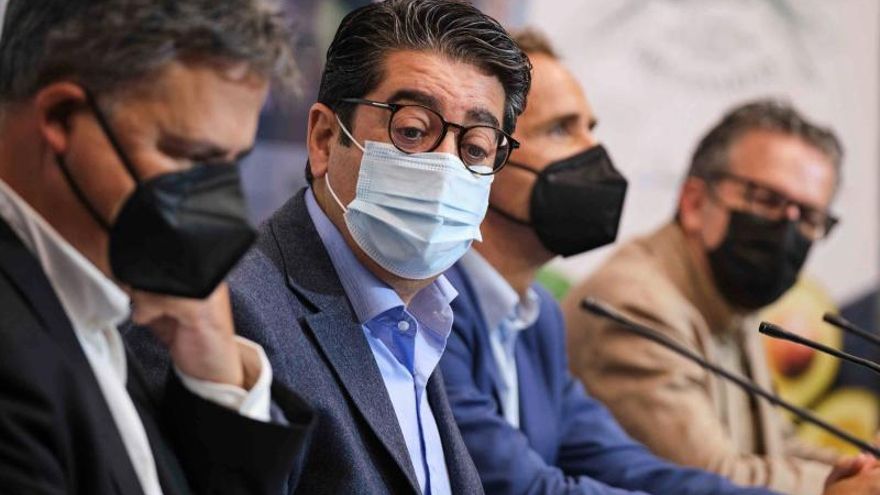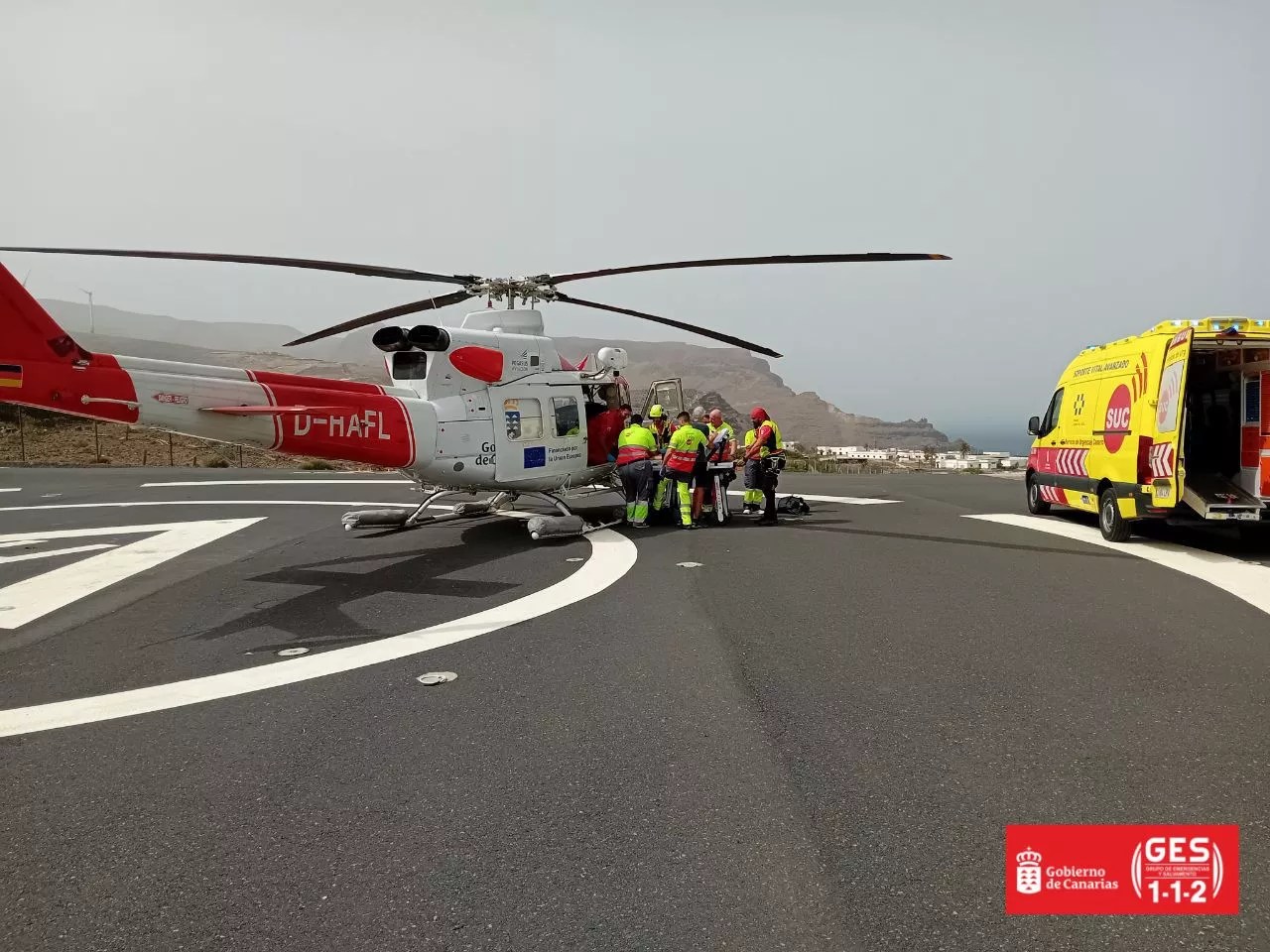
Profitable, exportable and quality. They are the characteristics of avocado wrap Tenerife, who has become the agricultural product with the highest growth in cultivated area, more than double in twelve years. In 2010 there were 329 hectares and today, according to data from the recent Crop Map of Canary Islandsamount to 790. In kilos it has gone from producing 1.7 million in 2012 to more than 4.29 million in 2020. The boom leads to council to be held in May, with the Casa del Vino de El Sauzal as the setting, the 1st Fruit Fair in the Canary Islands and the entire universe that surrounds it.
The island president Peter Martin, highlights this growth, which generates benefits both for the farmer and for the Island. In a very short time it has managed to even make the leap to exports, a boost for the entire primary sector. The forum on May 6 and 7 responds to this new reality. It will include technical seminars, talks, workshops and culinary demonstrations.
The act was also attended by the Minister of Agriculture, Livestock and Fisheries, Javier Grill; the president of the Association of Canary Islands Avocado Producer Organizations (Asguacan), Wenceslao Martínez-Barona; and the Deputy Minister of the Primary Sector of the Government of the Canary Islands, Alvaro de la Barcena.
Pedro Martín indicates that “this daring fair aims to put the accent on one of Tenerife’s alternative crops, which generates profits and in a short time has managed to combine domestic consumption with exports.” The president emphasizes that “avocado has become the fastest growing agricultural product on the island, doubling the cultivated area in 10 years, with a significant increase in production.” Another aspect to highlight is the high profitability for these producers. On the negative side are the numerous thefts suffered by farmers for the coveted value of so-called green gold.
Land recovery.
The island councilor for Agriculture, Livestock and Fisheries, Javier Parrilla, accepts that the May forum is daring, “but not daring.” He highlights “the exponential growth” that the crop has experienced in recent years. He provides as data that more than a thousand farmers are dedicated today to avocado in the Canary Islands.
In this sense, it details that the increase in the cultivated area, which reaches 790 hectares, has also been produced in an environmentally responsible manner. “Nearly 120 hectares of vacant and abandoned land have been reclaimed and put into production, contributing to the maintenance and improvement of our landscapes and agricultural soils.” Parrilla and Martín endorse the “sustainability” of a crop that is beginning to develop its growth from the use of “cheap and quality” reclaimed water. A bet of the Cabildo. In addition, they insist that “the land is not going to be occupied but to take advantage of the empty spaces to recover them as happened before with the banana or the tomato.”
An opportunity.
The president of the Association of Canary Islands Avocado Producer Organizations (Asguacan), Wenceslao Martinez-Baronavalues ”the professionalization” of the sector and is convinced that these sessions represent an opportunity for avocados, “which has had some difficult years with winds, volcanoes as in The Palm or the absence of agricultural insurance». This handicap has already been solved with the intermediation of public administrations.
Fight pests and epidemics.
The Deputy Minister of the Primary Sector, Álvaro de la Bárcena Argany, for his part, points out that through the Canarian Institute of Agricultural Research (ICIA) they will continue working “to combat pests and epidemics” to prevent them from having a negative impact on production and avocado marketing. All this with the intention that “it can continue at the best tables in the Canary Islands”. He emphasizes that “what seemed like a utopia has been achieved: maintaining exports 56 weeks a year both in Spain and in Europe, which is not easy at all.”
Program of the I Fair.
The May Fair, with a technical and informative sense at the same time, will include technical conferences, talks, workshops and various culinary demonstrations by important chefs such as Diana Marcelino Bermúdez -recent winner of the II Mojos Contest in Madrid Fusión with avocado as base–, Isidro Álvarez, Pedro Rodríguez Dios, Alfredo Marrero and Zebenzuí Acosta. On Friday, May 6, in Tacoronte, a cycle of technical talks will be held, aimed at professionals in the sector, among which the inaugural presentation on pollination stands out.
On Saturday, May 7, the avocado fair will be inaugurated at La Casa del Vino, with 16 stalls. Several nutritional and gastronomic talks are also planned, as well as four culinary demonstrations. People interested in these demonstrations will be able to register from next Monday 25, on the Agrocabildo website. The capacity of each showcooking will be limited to 25 people.
The avocado in Tenerife.
The main varieties that are planted are Hass, and to a lesser extent, Fuerte. Its cultivation expands outside the Valleys of Güímar and La Orotava. There are regular plantations in almost all the coastal municipalities. In those areas where temperatures range between 15 and 26 degrees, and have black earth volcanic soil -which allows good drainage-, a fattier avocado is grown, with aromas of almonds and walnuts, as well as greater unctuousness and material. dry. Although it is also produced in Malaga, Granada and Valencia, yields are higher in the Canary Islands and Tenerife because there are no great temperature contrasts or risk of frost.
4.29 million kilograms
The balance of avocado production in Tenerife in the year 2020. The comparison with 2012 is conclusive. A total of 1.7 million kilograms were then collected.
790 Hectares
Equivalent to 790 football fields. Avocado cultivated area compared to the 18,000 total on the Island. A sign of balanced development, far from speculation or monoculture.
120 Hectares
Those recovered from wastelands by avocado cultivation in the 2016-2021 period, according to the data offered this month by the update of the Crop Map of the Canary Islands.
















